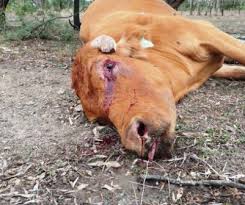
Renewed malaria outbreaks in Kavango

Op-ed by Hon Sibongile Ndlela-Simelane, Elimination 8 Chair and Minister of Health of Swaziland, and Dr. Richard Nchabi Kamwi, Elimination 8 Ambassador, Champion of the African Union’s Centre for Disease Control and Prevention, and former Minister of Health and Social Services of Namibia.
Six southern African countries have recorded a significant increase in malaria cases, with some countries citing a four-fold increase in cases from the same period last year. In Botswana and South Africa, cases of malaria are being reported in areas that had previously eliminated the disease, and outbreaks have been officially declared in parts of Botswana, Namibia, and Zimbabwe.
Consider Namibia. Due to its dedicated and aggressive malaria control programme, the country went from reporting over half a million cases in 2001 to fewer than 10,000 cases just fourteen years later. The Kavango East and West regions, have been particularly hard hit – they account for over half of recent malaria cases in the country.
What has caused the malaria outbreak in the region? An analysis is underway, but we know that the region’s unrelenting rains and flooding have propagated mosquito breeding sites and have displaced communities, limiting access to malaria services. The previous four years of drought gave us favorable conditions for progress toward elimination, some of which has now been undone by the rain. Low quality and low coverage of indoor residual spraying (IRS) – the main preventative measure in almost all of the E8 countries—is likely confounding the situation.
Given the region’s vulnerability to climate change and the likelihood of alternating periods of heavy rain and drought in the future, an examination of what we can do differently will enable us to adapt our methods to volatile climactic patterns and prevent future outbreaks. Today’s situation has highlighted the need for stronger surveillance and early warning systems, greater coverage of malaria prevention and treatment in areas that need it the most, and improved coordination and data sharing among neighboring countries. If we are to eliminate malaria, the association between rain and malaria outbreaks must be broken. We can do more to ensure that rain no longer results in an increase of malaria.
The current outbreak poses serious threats to the health and socioeconomic status of the affected countries, and the risk of resurgence cannot be understated. But all is not lost. Several of southern Africa’s malaria-endemic countries have made remarkable progress against the deadly disease. Building on previous gains, national malaria control programmes have rallied under the banner of the Elimination 8 (E8) Regional Initiative, an extraordinary endeavor to jointly and progressively achieve regional elimination.
This thriving regional initiative – a partnership between Angola, Botswana, Mozambique, Namibia, South Africa, Swaziland, Zambia, and Zimbabwe – is central to achieving malaria elimination targets in the larger Southern Africa Development Community (SADC) region. The E8’s four ‘frontline countries’ (Botswana, Namibia, South Africa, and Swaziland) are poised for elimination by 2020, and its four second line countries (Angola, Mozambique, Zambia, and Zimbabwe) are aiming to become malaria-free by 2030. The success of the E8 in the next few years will pave the way for further gains in the malaria endemic heartland.
The current malaria outbreak has already demonstrated the value of the E8 collaboration. At an emergency E8 meeting convened last month, Ministers of Health and national malaria control programme managers came together to analyze the latest developments, share learnings, and develop a joint action plan for a regional early warning system. Joint investments like the regional database and early warning system will inform timely and strategic deployment of resources to the worst affected areas. In this way, the outbreak, while revealing some areas of programmatic weakness and vulnerability, offers great opportunity for the E8 to fulfill its mandate of knowledge sharing and collaborative problem solving.
In the event of a multi-country malaria outbreak– when information is power, resources are limited, and time is of the essence—engagement, transparency, and collaboration between programmes are critical. Now more than ever, the E8 countries must rely on each other for timely, accurate information to prevent, detect, and contain the spread of malaria. As malaria programmes from Angola to Mozambique combat the outbreak on the ground, the E8’s unique platform for regional coordination and data sharing will accelerate progress toward the shared vision of a region free of malaria. Fighting the malaria outbreak today will secure regional health, security, and development for years to come.












































